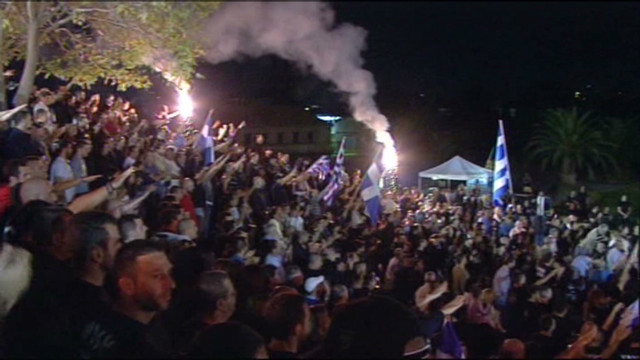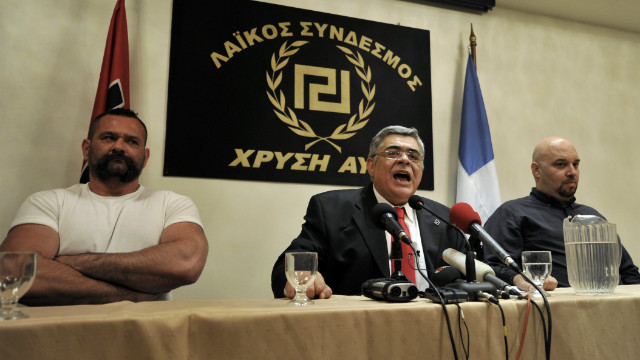Story highlights
- AEK Athens bans Giorgos Katidis until end of season for controversial goal celebration
- Midfielder, 20, has already been handed life ban from national team by Greek federation
- AEK to decide player's future after Super League ends in April
The Greek footballer who achieved global infamy on Saturday after celebrating a goal with a fascist salute has been barred by his club until the end of the season.
Having already been issued with a life ban from the Greek national team for his actions in the 2-1 league win over Veria, Giorgos Katidis has now been sanctioned by AEK Athens as well.
The move follows widespread criticism of the 20-year-old's behavior, with many commentators expressing disbelief at the player's claim that he was ignorant of the full meaning of his actions.
In a statement, AEK confirmed rumors that the club future of the onetime Greek under-19 captain is now in serious question.
"The board has decided to suspend Katidis until the end of the 2012-13 season, taking into consideration the horrific image his behavior provoked and has imposed the highest possible fine according to internal regulations," the club said.
"Whether he continues or not at the club will be decided in the summer after giving him the chance to prove his behavior was the result of immaturity and after assessing whether his re-introduction into the side will be possible without creating shockwaves to AEK."
A section of AEK's support -- influential fan group Original 21 -- has already said that it wishes to see Katidis expelled from the club.
Champions on 11 occasions prior to a recent slump caused, in part, by enormous debts, AEK has long been proud of its reputation as a club with a left-wing feel.
It was founded in 1924 by Greek refugees from Constantinople (now Istanbul) -- with AEK standing for Athletic Union of Constantinople in English -- following the Greco-Turkish war of 1919-1922.
An example of the club's political leanings came when AEK played a friendly in Belgrade against local side Partizan in April 1999, a fortnight into NATO's bombing campaign of Serbia, in a show of solidarity.
Given this background, not to mention Germany's detested wartime occupation of Greece and the recent rise of neo-fascist political party Golden Dawn, Katidis has since admitted the "stupidity" of his actions.
His club ban follows on from a statement he gave on Sunday, in which he asked to be dropped from the first team because of the way in which he had "offended the history" of AEK.
His announcement came shortly after a man who steered Greece to the UEFA Under-19 Championship final in 2012 learned of his lifetime ban from the senior national team by the Hellenic Fooball Federation.
"I made the mistake so I will be the one to pay for it -- AEK is not responsible," Katidis' statement read.
"So that is why I have decided to put myself out of the team because I have now realized how much I have offended the history of the club.
"I sincerely apologize to my team mates and everyone involved with the club that I insulted in not knowing exactly what I had done in my celebration. Nonetheless, the fact that I did not know what I was doing is no excuse."
The sentiment was shared by many around the world and particularly in Greece, where the midfielder's actions came on the very weekend that marked the 70th anniversary of Greek Jew deportations to German concentration camps.
Although his 84th minute goal helped lift troubled AEK four points clear from the relegation zone, Katidis will play no further role in the remaining two months of the season as the traditional giants of the Greek game try to avoid the first relegation in their long history.










